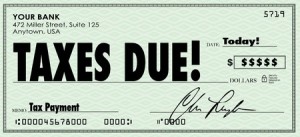In Kenneth M. Ruskowski v. Director, Division of Taxation, the Tax Court of New Jersey held that the plaintiff’s in lieu tax payments (PILOT payments) did not constitute “property taxes,” as the term is defined under N.J.S.A. 54:4-8.67. Accordingly, the court ruled that the Director of the Division of Taxation properly denied the plaintiff’s Property Tax Reimbursement Applications.

The Facts of the Case
Kenneth M. Ruskowski (plaintiff) owns a residential condominium unit in Newark. According to the City of Newark, Department of Finance, Office of Assessment, the subject property “was granted a 30 years [sic] Fox Lance Tax Abatement as of the Certificate of Occupancy dated Jan. 21, 1989 and expires in Jan. 30, 2019. The property pays land taxes and [a] tax abatement, in lieu of improvement taxes.” Accordingly, in addition to taxes due on the land, Ruskowski was required to make annual PILOT payments.
The plaintiff filed 2011 and 2012 Property Tax Reimbursement Applications pursuant to Property Tax Reimbursement Program (PTR), which is available to individuals 65 or older or who are disabled and who meet certain income and eligibility requirements. The PTR reimburses qualifying senior citizens and disabled persons for property tax increases.
The Director of the Division of Taxation denied the applications. The Director concluded that the plaintiff was not entitled to PTR as the “dwelling house and the land in which the dwelling house is situated, must be assessed as real property and have property taxes paid on both land and improvements.” The Director further concluded that the plaintiff’s PILOT payments did not constitute “property taxes” under N.J.S.A. 54:4-8.67. After conducting a trial, the Tax Court agreed. The plaintiff subsequently sought reconsideration.
The Court’s Decision
The Tax Court denied the motion for reconsideration. The Tax Court held that it was satisfied that its June 7, 2016 letter opinion adequately addressed why the Director’s interpretation of the term “property taxes” under N.J.S.A. 54:4-8.67 was entitled to prevail. As explained by the court in the letter opinion:
The term “property taxes” under N.J.S.A. 54:4-8.67 must be read in pari materia with the term “property tax” under N.J.S.A. 54:4-8.58. Because our Legislature specifically excluded PILOT payments from the definition of “property tax” under N.J.S.A. 54:4-8.58, the court concluded that the term “property taxes”, as defined under N.J.S.A. 54:4-8.67, excludes PILOT payments.
The Tax Court rejected all of the plaintiff’s arguments, characterizing them as an attempt to “reargue” the case.
For more information about the New Jersey Tax Court’s decision or the legal issues involved, we encourage you to contact a member of Scarinci Hollenbeck’s Government Law Group.
